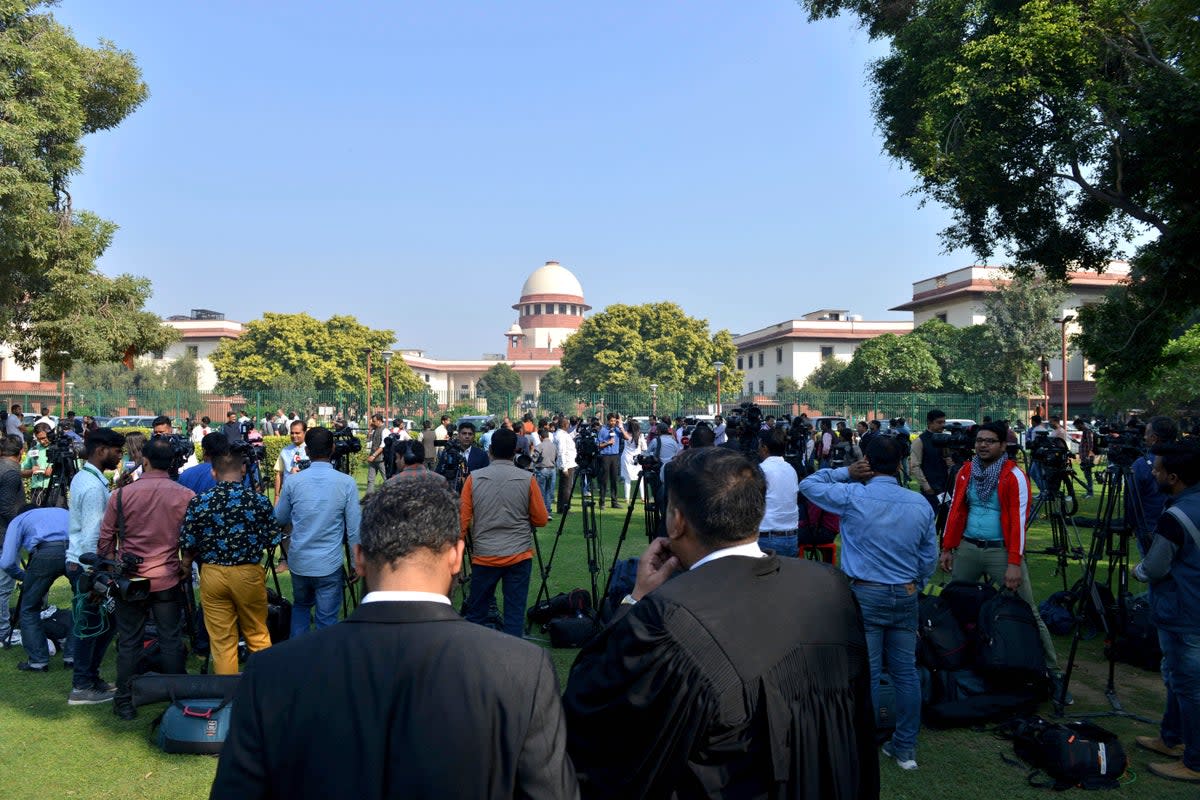India’s Supreme Court scraps election funding system that allows anonymous donations to political parties

The Supreme Court of India on Thursday struck down a seven-year-old electoral funding scheme that allows individuals and companies to anonymously donate funds to political parties.
A five-judge bench headed by Chief Justice DY Chandrachud in a unanimous judgment held that the system was “unconstitutional”. The court said the electoral bonds (EB) scheme was violative of a person’s right to information and free speech.
The decision is seen as a setback for prime minister Narendra Modi’s ruling Bharatiya Janata Party (BJP), which has been the largest beneficiary of the system it introduced in 2017.
From 2018 to 2023, anonymous donors gave more than £1.5bn to political parties through these bonds, according to Association for Democratic Reforms, an election watchdog. It said between 2018 and March 2022 nearly 57 per cent of these donations went to Mr Modi’s BJP. In comparison, the opposition Congress party has only received 10 per cent.
Only registered political parties that received a minimum of 1 per cent of votes in a previous election for the parliament or a state assembly were eligible to receive these bonds
Before introduction of the scheme, political parties in India had to disclose the identity of any donor who gave more than Rs20,000 (about £191).
But the latest instrument of political financing allowed them to declare the amount of money they received through the bonds, but not the funders’ identity. These bonds were sold in denominations ranging from Rs 1,000 (£9.6) to 10 million rupees (£95,972).
The electoral bonds were challenged by opposition members and a civil society group on grounds that it hindered the public’s right to know who had given money to political parties.
Under the system, a person or company can buy these bonds from the state-run State Bank of India (SBI) and donate them to a political party of their choice.
The case was heard by the constitutional bench for three days between 31 October and 2 November last year.
Advocate Prashant Bhushan, appearing for civil society group ADR and Common Cause, argued that the scheme distinctly favours the ruling government of the time, as the guarantee of anonymity allows them to prvide concessions to the donors in the form of licenses, leases, policy changes, and government contracts.
Solicitor General Tushar Mehta appearing for the government, however, defended the scheme saying the focus was not ensure “anonymity” but to provide “confidentiality” to the donor, as he argued for a donor’s right to privacy.
But the five-judge bench, also including Justices Sanjiv Khanna, BR Gavai, JB Pardiwala and Manoj Misra, agreed with the petitioners, ruling: “Electoral bonds scheme has to be struck down as unconstitutional. It violates the right to information of citizens, about possible quid pro quo.”
“Financial contributions to political parties are made for two parties – for support to political party, or contribution may be way of quid pro quo,” the bench added.
It also directed banks to stop issuing electoral bonds, ordering SBI to furnish details of those encashed by the political parties. It also said that the details should be submitted to Election Commission of India, which should be then published on the website of the constitutional body.
Former chief election commissioner of India SY Quraishi called the judgement “historic”, saying it is a “great boon for democracy.
“We were all concerned about it for the last so many years...everyone who loves democracy was protesting about it,” he told Press Trust of India. “I myself wrote several articles and spoke to the media many time. And every issue that we had raised, has been tackled in this judgement.”
Mr Bhushan also welcomed the judgement saying “it will have a long-term effect on our electoral democracy”.
“The Supreme Court has struck down the Electoral Bond Scheme and all the provisions that were made to bring it into effect in the income tax act, in the companies act, etc. Everything has been struck down. They have held that this violates the fundamental right to information of citizens to know about who is contributing this much money to political parties,” he said.

 Yahoo News
Yahoo News 
